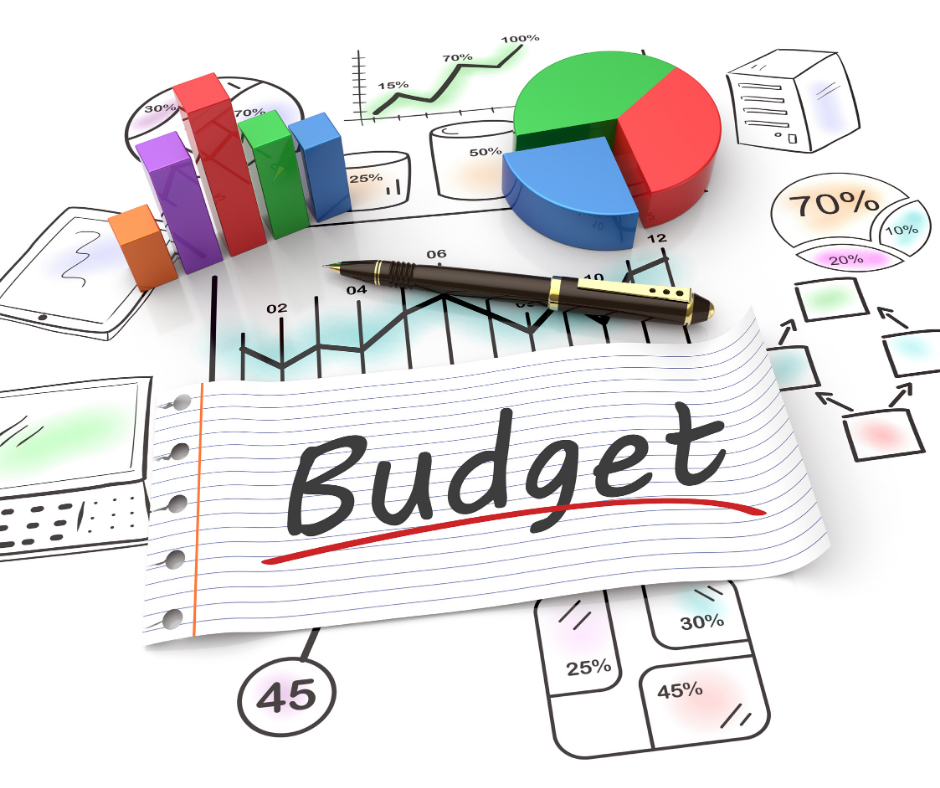Budgeting is a critical component of personal finance, yet many people struggle to stick to a budget and find themselves feeling overwhelmed and stressed about their finances. Whether you’re just starting out on your financial journey or you’re looking to improve your existing budget, the key to success is creating a budget that works for you. A budget is a plan for how you will allocate your income each month to meet your expenses, pay off debt, and save for the future. By following a budget, you can prioritize your spending, stay on top of your finances, and build a solid financial foundation for yourself. In this article, we’ll guide you through the steps of creating a budget that will help you master your money and achieve financial stability and independence.
Step 1: Determine Your Income
The first step in creating a budget is determining your income. This includes all sources of money that come in each month, such as your salary, bonuses, investment returns, and any other sources of income. Be sure to calculate an average monthly amount for each source of income, as this will be used as the starting point for your budget.
It’s important to note that your income may fluctuate from month to month, so it’s important to keep track of your income and adjust your budget accordingly. If you have a variable income, consider creating a budget based on your average monthly income over the past year to ensure that you have a realistic understanding of your monthly income.
Step 2: Track Your Spending
Once you have a clear picture of your income, the next step is to track your spending. Write down all your expenses, including necessary expenses like housing, food, and transportation, as well as discretionary spendings like entertainment and shopping. This will give you a good idea of where your money is going each month and what areas you can cut back on.
There are several ways to track your spending, including using a budgeting app, writing down your expenses in a notebook, or using spreadsheet software. The key is to find a method that works for you and stick with it. It’s also important to review your spending regularly to ensure that you have an accurate understanding of your expenses.
Step 3: Create a Budget
With your income and spending information in hand, you can create a budget that allocates money to necessary expenses, savings, and debt repayment. Start by allocating funds for essential expenses, like housing and food, and then allocate funds for other expenses like entertainment and shopping. Make sure to allocate some money each month for savings and debt repayment, as these are important for achieving long-term financial stability.
It’s also important to leave some wiggle room in your budget for unexpected expenses. Consider setting aside 10-15% of your budget for unexpected expenses, such as car repairs or medical bills. This will help you avoid going over budget and keep you on track toward achieving your financial goals.
Step 4: Stick to Your Budget
Sticking to your budget can be a challenge, but with discipline and a little effort, it can be done. Avoid impulse spending and stick to the priorities you set for yourself. Use cash or prepaid cards for discretionary spending to help you stick to your budget. And be sure to review your budget regularly to ensure that you’re staying on track and making progress toward your financial goals.
It’s also important to be flexible and make adjustments to your budget as needed. If you find that you’re consistently overspending in certain areas, consider reducing your spending in those areas or finding additional sources of income to help you stay on track. On the other hand, if you’re doing better than expected in certain areas, consider using that extra money to pay off debt or increase your savings. The key is to stay on top of your finances and adjust your budget as needed to ensure that it works for you.
Step 5: Set Financial Goals
Finally, it’s important to set financial goals for yourself. Whether it’s paying off debt, saving for a down payment on a house, or building an emergency fund, having a clear understanding of your financial goals will help you stay focused and motivated as you work to master your money.
Be realistic about your goals and break them down into smaller, achievable steps. For example, if your goal is to pay off debt, consider setting a target payment each month and a deadline for when you want to be debt-free. Then, make a plan to achieve your goals and track your progress regularly to ensure that you’re on track.
Step 6: Reevaluate regularly
Review your budget regularly to ensure that you’re staying on track and making progress toward your financial goals. Life circumstances may change, so be flexible and adjust your budget as needed to reflect changes in your income, expenses, and goals. Consider reviewing your budget at least once a month, or more frequently if needed, to make sure you’re staying on track and making progress towards your financial goals.
Mastering your money takes time and effort, but with a well-structured budget, you can take control of your finances and achieve financial stability and independence. By following these five steps, you can create a budget that works for you and help you achieve your financial goals. So start tracking your income and expenses, create a budget that meets your needs and goals, and stick to it. With discipline and effort, you can master your money and achieve the financial freedom you deserve.
In conclusion, budgeting is a powerful tool for managing your finances and achieving financial stability. By creating a budget, you can prioritize your spending, stay on top of your finances, and build a solid financial foundation for yourself. Whether you’re just starting out on your financial journey or you’re looking to improve your existing budget, following the steps outlined in this guide will help you create a budget that works for you and help you master your money.
It’s also important to remember that budgeting is not a one-time event, but rather a continuous process. As your financial situation changes, so too should your budget. Be open to making changes and adjustments as needed, and don’t be afraid to seek out additional resources if you need help. There are plenty of online resources, books, and financial advisors available to help you master your money.
Another key to success with budgeting is being mindful of your spending habits. Take time to reflect on why you spend money the way you do and consider what changes you can make to improve your financial situation. For example, if you tend to overspend when you’re feeling stressed, try finding alternative ways to manage the stress that don’t involve spending money.
Finally, it’s important to stay focused and motivated. Remember that creating a budget and sticking to it takes discipline, effort, and patience, but the rewards are well worth it. By taking control of your finances and building a solid financial foundation for yourself, you’ll be able to achieve greater financial security and independence and enjoy peace of mind knowing that you’re in control of your money.



